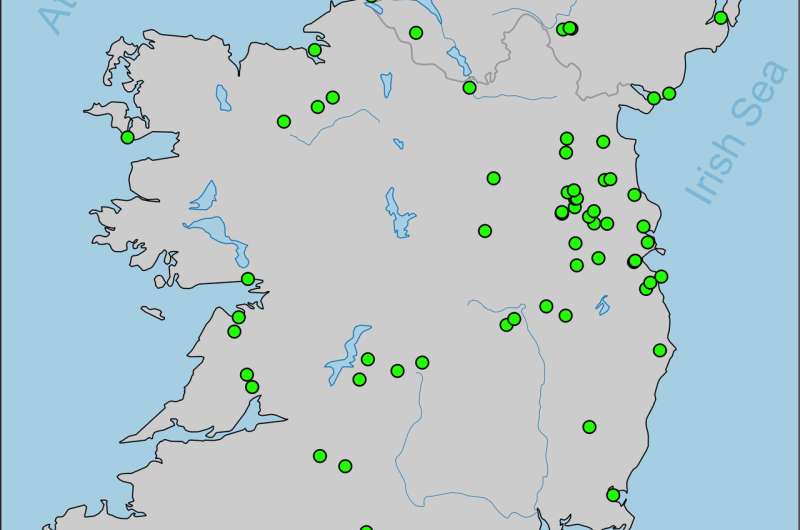Ancient agricultural activity caused lasting environmental changes

Agricultural activity by humans more than 2,000 years ago had a more significant and lasting impact on the environment than previously thought. The finding— discovered by a team of international researchers led by the University of British Columbia— is reported in a new study published today in the journal Science Advances.
The researchers found that an increase in deforestation and agricultural activity during the Bronze Age in Ireland reached a tipping point that affected Earth's nitrogen cycle— the process that keeps nitrogen, a critical element necessary for life, circulating between the atmosphere, land and oceans.
"Scientists are increasingly recognizing that humans have always impacted their ecosystems, but finding early evidence of significant and lasting changes is rare," said Eric Guiry, the study's lead author and a postdoctoral research fellow in UBC's department of anthropology. "By looking at when and how ancient societies began to change soil nutrients at a molecular level, we now have a deeper understanding of the turning point at which humans first began to cause environmental change."
For the study, the researchers performed stable isotope analyses on 712 animal bones collected from at least 90 archaeological sites in Ireland. The researchers found significant changes in the nitrogen composition of soil nutrients and plants that made up the animals' diet during the Bronze Age.
The researchers believe the changes were the result of an increase in the scale and intensity of deforestation, agriculture and pastoral farming.
While these results are specific to Ireland during the Bronze Age, Guiry said the findings have global implications.
"The effect of human activities on soil nitrogen composition may be traceable wherever humans have extensively modified landscapes for agriculture," he explained. "Our findings have significant potential to serve as a model for future research."
The study, "Anthropogenic changes to the Holocene nitrogen cycle in Ireland," was co-authored by researchers at the Institute of Technology Sligo, Trent University, the University of Oxford, Queen's University Belfast, and Simon Fraser University.
More information: E. Guiryat University of British Columbia in Vancouver, BC, Canada el al., "Anthropogenic changes to the Holocene nitrogen cycle in Ireland," Science Advances (2018). DOI: 10.1126/sciadv.aas9383 , advances.sciencemag.org/content/4/6/eaas9383
Journal information: Science Advances
Provided by University of British Columbia

















